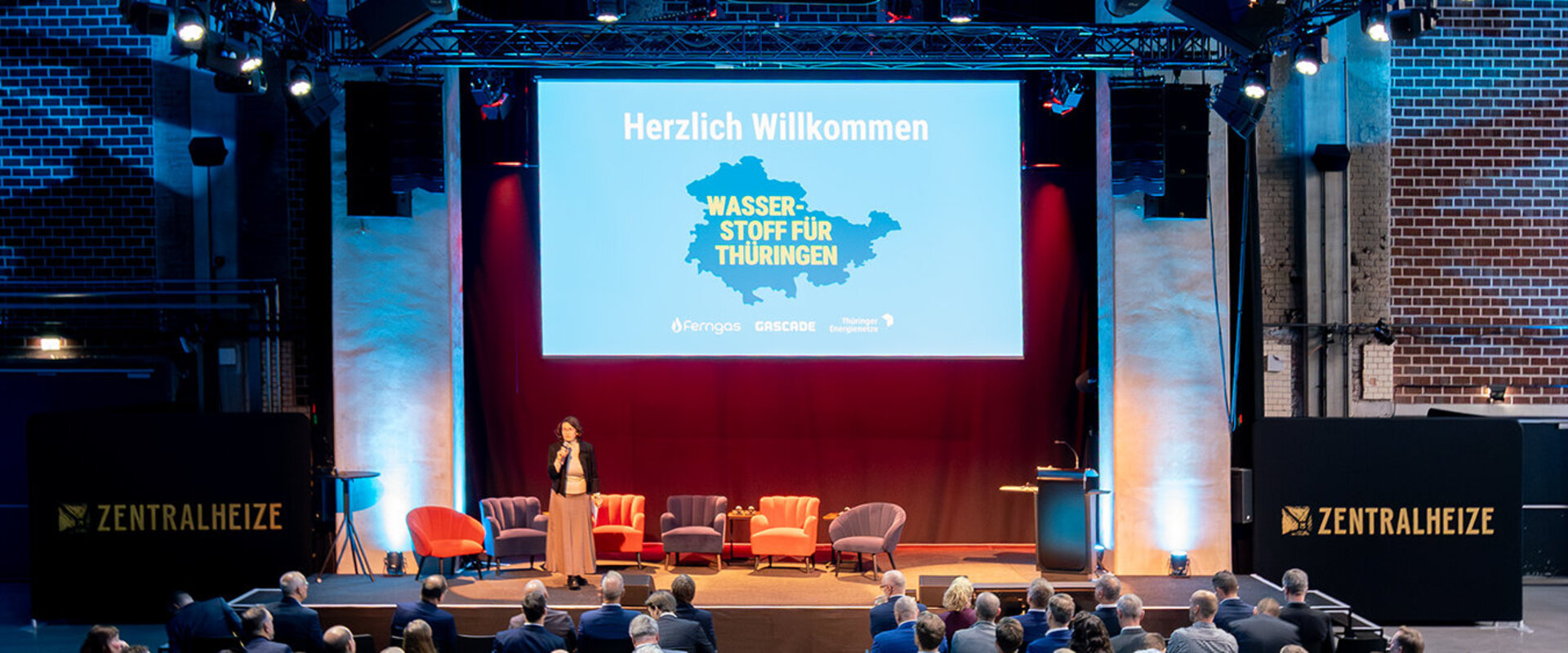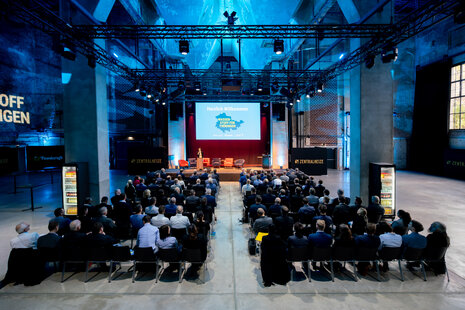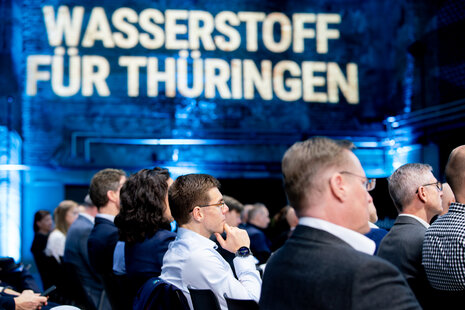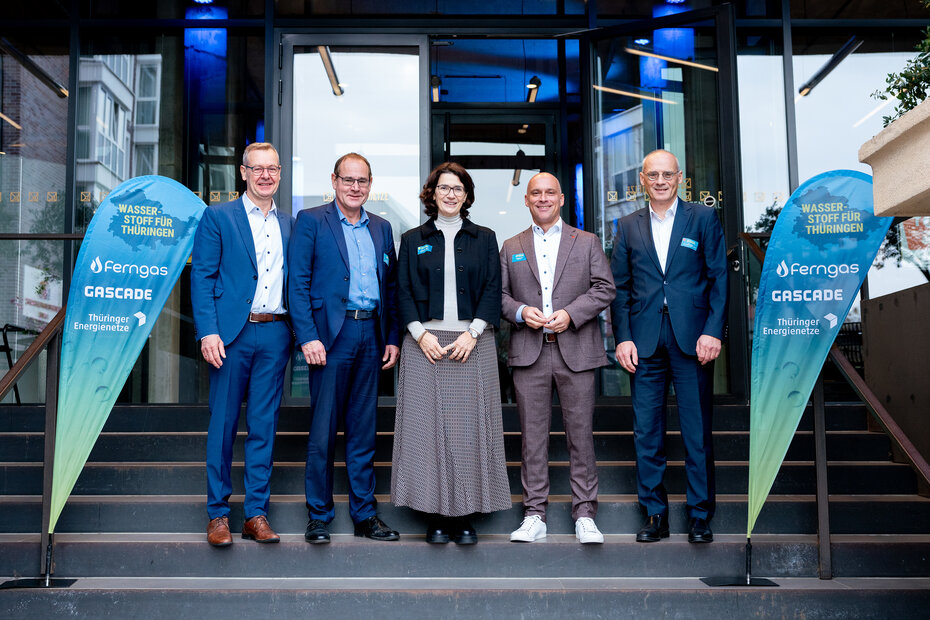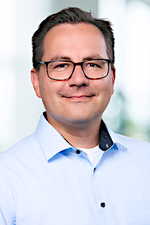Back in March 2024, network operators Ferngas, GASCADE and TEN signed a memorandum of understanding on converting Thuringia's natural gas network to hydrogen. At the joint event ‘Hydrogen for Thuringia’, they are now presenting their progress and goals for a sustainable energy supply based on hydrogen.
Erfurt. At the second joint hydrogen conference of the network operators Ferngas (Schwaig near Nuremberg), GASCADE (Kassel) and TEN (Erfurt), the companies will report in Erfurt on how the agreement in principle concluded at the first joint conference in March 2024 to convert their gas pipeline infrastructure to hydrogen is being implemented in practice. All three network operators provide essential supply services in Thuringia with their gas network infrastructure.
The agreement forms the basis for close cooperation between the companies. This is important in order to plan and determine how parts of the network infrastructure for the transport and distribution of natural gas can be converted to hydrogen. In addition to converting the pipelines, this will also require the construction of new network infrastructure in some cases. The cooperation concerns the network level of a long-distance transmission system (Ferngas, GASCADE) and the distribution network level (Ferngas, TEN).
At the conference, Energy Minister Tilo Kummer emphasised the importance of a functioning hydrogen infrastructure for Thuringia: "Thuringia is well on its way to providing hydrogen to important stakeholders. We have strong partners here for functional networks. If we want to use the energy mix with renewable energies flexibly, we need not only hydrogen storage facilities but also hydrogen distribution networks that ensure supply to end customers. Now that the refinancing of the hydrogen core network has been regulated at federal level, suitable framework conditions for refinancing are also needed for the development of a distribution network. I will discuss this with my colleagues at the next Energy Ministers' Conference."
As part of the implementation of the Germany-wide hydrogen core network, GASCADE has already filled around 200 km of existing pipelines with hydrogen. This is an important prerequisite for transporting large quantities of hydrogen to Thuringia in the future. Initial network connections and grid connections between the partners' gas network projects within Thuringia have now been closely coordinated and, in some cases, planning has already begun.
One example of this is the coupling of two hydrogen core network projects by Ferngas and GASCADE near Jena. Ferngas is already carrying out preparatory measures for the pipeline conversion. In addition, Ferngas and TEN are planning further network coupling points from the future hydrogen core network to the downstream network level, for example in Marolterode in northern Thuringia: There, an underground storage facility operated by Thüringer Energie Speichergesellschaft and the Wasserstoffhub-Nord-West between Nordhausen and Mühlhausen, which will be powered by hydrogen in the future, are to be connected to the hydrogen core network via Ferngas' TH2ECO project. This will ensure that not only supra-regional transport routes are created, but also hydrogen infrastructure in and for Thuringia.
The three partners' plans for hydrogen pipeline infrastructure in the Free State are based on the needs of potential hydrogen customers. In order to be able to design and implement the infrastructure in a needs-based and efficient manner, the network operators require early and reliable notifications from potential hydrogen customers and producers.
By continuing the ‘Hydrogen for Thuringia’ series of events, the partners also want to emphasise that Thuringia is well positioned in terms of hydrogen infrastructure. Thuringia can also benefit from supra-regional developments when network operators and industry work together.
The transformation of the energy infrastructure is a massive challenge and requires us to look at both the existing energy system and a possible target vision, emphasises Antje Dimitrovici, Managing Director of Ferngas: "Hydrogen as an energy source represents an enormous opportunity for Thuringia to create an attractive industrial location with access to a CO2-free energy supply. We are thinking here of both transport and distribution across the region. Even if this cannot be connected in the short or medium term, we are already creating the conditions for it today. It is particularly important for us to consider today's security of supply and to be able to maintain our reliable energy supply. Here, we expect politicians and regulators to ensure that the framework conditions support these requirements for transformation and security of supply and do not hinder us in their implementation."
Ulrich Benterbusch, Managing Director of GASCADE, predicts that "400 km of GASCADE pipelines will be available for hydrogen transport by the end of the year. Thuringia's infrastructure connections will also benefit from this development. Hydrogen will be able to flow to Thuringia as early as 2028, and the planned transport route will be fully operational in 2029. There will also be grid connections and grid interfaces to meet demand in Thuringia."
“As an electricity and gas network operator, TEN can already draw important conclusions for the energy system of the future: further expansion of renewables must be more closely aligned with demand and grid utility, as we are already unable to use significant amounts of renewable electricity ourselves and have to feed it back into the transmission grid or, in the worst case, even curtail it. In order to further strengthen the integration of renewables into energy systems, we also consider grid-friendly electrolysis as a coupling element between electricity and hydrogen grids and the use of hydrogen, especially where electrification is difficult or even uneconomical, to be one of several important building blocks for the success of decarbonising the energy supply," explains Ulf Unger, Managing Director of TEN Thüringer Energienetze.
Brief profiles of the project partners
About GASCADE
GASCADE Gastransport GmbH operates a gas pipeline network throughout Germany. The Kassel-based transmission system operator offers its customers modern and competitive transport services for natural gas and, in future, other gases in the heart of Europe via its own high-pressure pipeline network, which is around 3,700 kilometres long. GASCADE is pursuing the goal of successively converting its pipeline network to the transport of hydrogen and is therefore active in several onshore and offshore hydrogen projects
About Ferngas
The high-pressure gas network of Ferngas Netzgesellschaft mbH extends over more than 3,000 kilometres in Thuringia and northern Bavaria. It is used to transport natural gas and biogas. In future, other green gases, in particular hydrogen, are also to flow through it. This change is being actively promoted. The H2 pilot project TH2ECO (Thuringian H2 Ecosystem) was launched back in 2021. Many well-known companies with roots in Thuringia are involved in this project, including network operators, energy and electricity suppliers, and specialists in renewable energies. With the TH2AL 437 project, Ferngas is also contributing to Thuringia's connection to the German hydrogen core network with a conversion project. More information about the company can be found at www.ferngas.de.
About TEN
TEN Thüringer Energienetze is Thuringia's largest distribution network operator. It provides all infrastructure services for electricity and natural gas supply as well as connecting decentralised generation plants. The municipal company reliably supplies more than 1.1 million people and the economy of Thuringia, as well as parts of Saxony and Saxony-Anhalt, with energy via a 40,000-kilometre-long electricity and natural gas network. For more information, visit www.thueringer-energienetze.com.

